Sage is a recognized leader in the custom countertop industry, offering an unmatched selection of products and services.
By partnering with us, you gain access to our long standing relationships with national retailers, e-commerce platforms, builders, and multi-family developers.
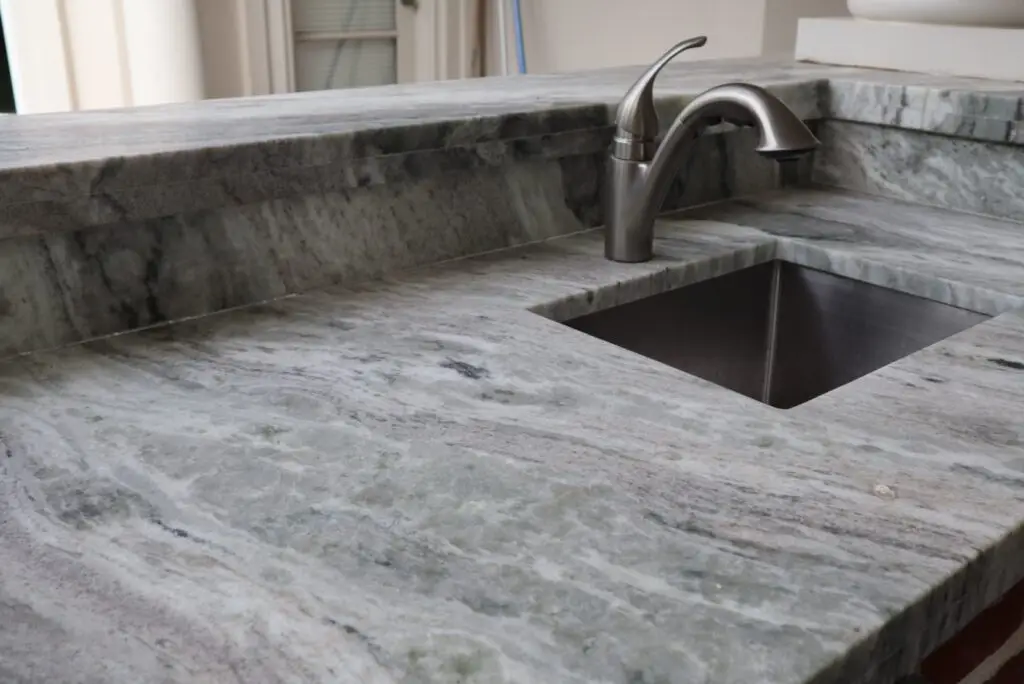
Products
With a national distribution network and an extensive domestic and global manufacturers network, Sage offers the industry’s most comprehensive countertop material selection.
Solid Surface

Solid Surface
A non-porous material that locks out bacteria. Its designs mimic natural stone patterns while offering easy maintenance and repairability, making it an affordable and stylish choice.
Porcelain

Porcelain
A highly durable, lightweight material with a sleek, modern aesthetic. Its non-porous surface resists staining, fading, and moisture, making it perfect for outdoor and indoor applications.
Quartz

Quartz
The most sought-after choice today, quartz is prized for its durability, low maintenance, and non-porous nature. Sage offers trend-setting designs to suit all tastes and budgets.
Butchers Block
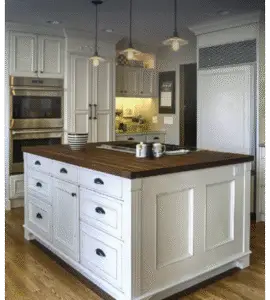
Butchers Block
Butcher block countertops offer a warm, natural look with a Varnique® finish and full rail design, providing a fine furniture look, feel, and durable functionality.
Quartz Tech
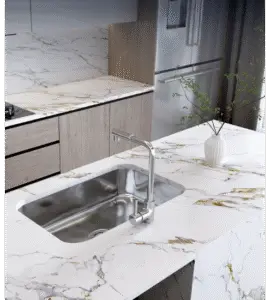
Quartz Tech
Quartz material that utilizes advanced printing technology to replicate high-end quartzite and marble designs flawlessly, offering luxurious aesthetics at a greater value.
Laminate
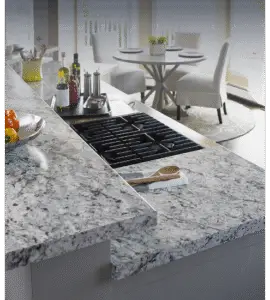
Laminate
The most sought-after choice today, quartz is prized for its durability, low maintenance, and non-porous nature. Sage offers trend-setting designs to suit all tastes and budgets.
Natural Stone
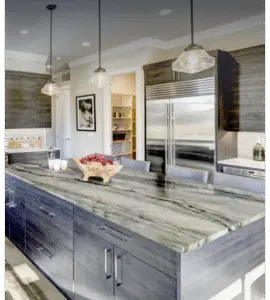
Natural Stone
Natural stone offers timeless beauty and unique patterns crafted by nature. Each slab is one-of-a-kind, delivering unmatched elegance and lasting durability.
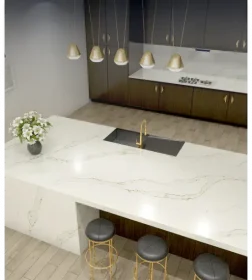
Quartz
The most sought-after choice today, quartz is prized for its durability, low maintenance, and non-porous nature. Sage offers trend-setting designs to suit all tastes and budgets.
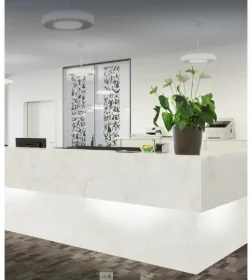
Solid Surface
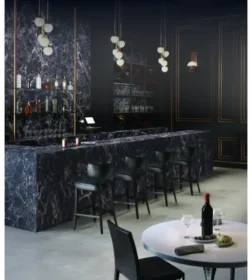
Porcelain

Butcher Block
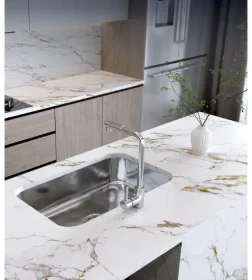
Quartz Tech
Quartz material that utilizes advanced printing technology to replicate high-end quartzite and marble designs flawlessly, offering luxurious aesthetics at a greater value.
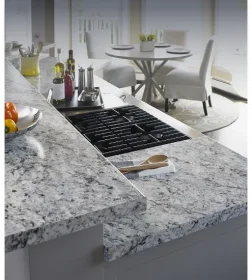
Laminate
The most sought-after choice today, quartz is prized for its durability, low maintenance, and non-porous nature. Sage offers trend-setting designs to suit all tastes and budgets.
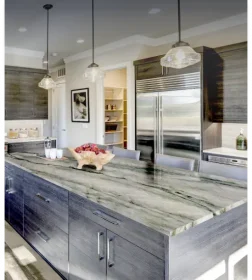
Natural Stone
Natural stone offers timeless beauty and unique patterns crafted by nature. Each slab is one-of-a-kind, delivering unmatched elegance and lasting durability.
Benefits of Partnership with Sage
Partnering with Sage Surfaces opens the door to nationwide opportunities, access to products from a multi-national manufacturing network, consistent project flow, and fast, reliable payments.
Consistent Work
Capture additional sales through our nationwide network of global retailers, e-commerce platforms, builders, and developers.
Fast Reliable Payment
Get paid on time- with weekly direct deposits as the standard for our partners.
Leading Edge Technology Platform
Stay connected to order management, facilitate seamless communication, and experience unmatched workflow efficiency.
The Sage Difference
Sage is powered by partnership with a global material selection, hyper-local network of certified installers, service providers, national retailers, and seamless project management through cutting-edge software. Backed by a dedicated support and field team, we are solution experts—delivering speed, precision, and unmatched expertise.

Gimbil
Take control of your orders with Gimbil, the ultimate mobile application for seamless field-to-office communication. Designed for professionals on the go, Gimbil keeps your workflow smooth and efficient with:
- Real-time Scheduling
- Instant Updates
- Digital Signatures
- Photo Uploads

Countertop Academy
The Countertop Academy is a series of virtual training videos, conveniently housed on Sage Sync, designed to streamline information and provide training—quickly, efficiently, and all in one place. This easy-to-access platform provides essential training on:
- Product knowledge
- Effective selling techniques
- Setting customer expectations

Sage Sync
Sage Sync is our in-house order management system that connects our Sage team, customers, retailers, manufacturers, and trades in one platform. It streamlines operations with:
- Live Order Updates
- Centralized Documentation
- Seamless Communication
- Countertop Academy
- Easy Estimator

Easy Estimator
Easy Estimator is a powerful online tool designed to help our partners visually design and quote projects with ease. This estimator streamlines the process by:
- Instantly Generating & Saving Estimates
- Upfront Cost Clarity
- Boosting Sales Confidence

Project Management and Customer Service
Sage thrives in providing project management services to oversee and coordinate every aspect of a countertop installation. We pride ourselves in providing:
- Client Communication
- Timeline Coordination
- Vendor Management Support
- Training Programs
- Proactive Resolutions
What Our Partners Are Saying



Partnership Requirements
- Licensed and Insured
- Full Background Check for In-Home Workers
- Complete Sage System Training
- Partnership Team Player
- Employ an Excellent Customer Service Staff
Set Up a Discovery Meeting
Partnering with Sage means access to consistent work, fast payments, and the support you need to grow your business. Join or leverage our trusted installer network to achieve your goals and build long-term success.